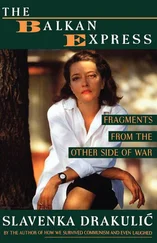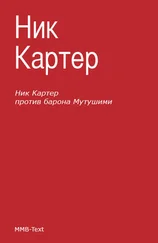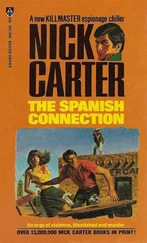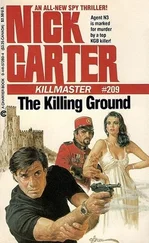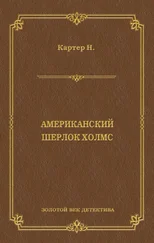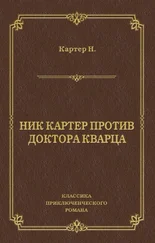By nightfall, I had learned only that the Ninca tribe still lived in an area near the east slope of Mount Toro, and that Ancio was either their chief or had been killed for his zeal in making human sacrifices. I knew that one of my first moves was to find the Ninca Indians and talk to Ancio if he were still around. If I found that ancient cave, I very well might find a way past Don Carlos Italla’s fancy defenses.
That’s why I broke my promise to Pico and crept away in the night. I had promised to wait until at least noon and the next day. But my days were slipping away too fast, and I felt strong. I set out for the lookout point, hoping against hope to find Antonio there, alive and well.
Dawn was just starting to break when I neared the lookout point Elicia had shown me the night I took her to her cousin’s hut. I would have reached it sooner, but I kept getting lost on Pico’s crazy trail.
The wound in my side throbbed with pain, but it hadn’t broken open and I was convinced that Pico’s work would hold up. Unless, of course, I got into a scrap with a guerilla or a Cuban Marine. Needless to say, my long journey from Pico’s hermit hut had been a wary one, avoiding all signs of civilization.
I eased through the foliage, approaching the lookout with caution. Antonio could have been captured and tortured, he could have told the Cubans that he was to meet me here. Then, again Antonio could be hiding there with his rifle at the ready, and could shoot me if I made the slightest noise.
It had always seemed silly to me when I’d read in books that people signalled each other in the night with special bird calls or hooting like owls. It didn’t seem silly to me now. I wished that I’d worked out such a plan with Antonio.
It wasn’t necessary. When I slipped into the clearing and scanned the open ledge, Antonio was fast asleep. A friend with him also was asleep. In the dim light of not-quite-dawn, they looked like two logs wrapped in blankets.
Just in case it wasn’t Antonio and a friend, I lowered the heavy Russian Volska I’d been carrying and palmed Wilhelmina. I sat to one side of the trail and aimed at the first blanket-covered sleeper.
“Antonio, wake up.”
The log raised up, the blanket fell away and there was Elicia Cortez staring down the muzzle of my luger, her eyes wider than saucers.
“Senor Carter,” she exploded, much too loudly for comfort. “We thought you were dead.”
Antonio stirred in his blanket and I thought perhaps he had also been wounded, worse than me. But he aroused, proving only that he was a sound sleeper.
As I told them all the things that had happened to me since Antonio and I had parted on that steep hillside with bullets raining down from above, Elicia kept watching my every move, hanging on every word. She also kept inching closer, as though I were a campfire and the air was cold.
“We have heard much of the hermit of Mount Toro,” Antonio said when I was finished, “but you are the first man to have seen him in thirty years and to tell about it. The stories say that he cooks and eats anyone who comes near his cave.”
“The stories are all wet,” I said. “For one thing, the man is a vegetarian. He won’t kill animals for food or for wearing apparel. For another, he doesn’t have a cave — just a hut he built himself out of vines. Now, tell me about yourselves. How did you happen to wind up together? Where are your friends?”
Both faces went gloomy. Elicia stared at the ground, but remained at my side, touching me occasionally with a knee, a hand, an arm. Antonio told how he had found one of his friends, wounded and roaming aimlessly on a trail. The friend had died in his arms. He hadn’t found any others.
Finally, he had returned to his parents’ house, hoping that perhaps some of his friends had left word there.
“I wish I hadn’t gone home,” he said sadly. “What I feared would happen has happened. My parents are gone and a bunch of Cuban Marines are living in the house. I asked around, but the neighbors could tell me only that there was shouting and screaming in the night, two days ago. And there was shooting, then silence. I know, Senor Carter, that our parents are dead. Our property now belongs to Colonel Vasco.”
And Colonel Vasco, I knew, would sell it at a high price to Cuban immigrants after the bloody revolution put Don Carlos in control and made both Nicarxa and Apalca allies of Cuba. Antonio had reason to be fearful that his parents were dead.
“This may sound ungrateful to the memory of your parents,” I said, “but we haven’t time to mourn them properly. Our greatest chance is to find the Ninca tribe, get to that sacrificial cave in the mountain and hope to God the chimney is big enough for us to climb up through it.”
“I know a shortcut to the Ninca lands,” Antonio said, brightening in spite of his grief for his parents. “Are you ready to travel?”
I had traveled all night, but I had also slept and rested for more than two days. I was ready. To make certain, Elicia insisted on carrying my rifle. She would have carried me, if she’d been strong enough. She couldn’t seem to show me enough attention, to touch me enough.
It became more and more obvious as we moved along dark trails toward the Ninca lands that Elicia had fallen in love with me. Recalling how I was when I was her age, I wasn’t about to underestimate that love. It was real and it was intense. But I didn’t fee! the same about her. Ever since my mind had made the connection between Elicia and American high school girls, I had thought of this girl the way a father might feel about a daughter. I had even begun to entertain a fantasy that I might somehow spirit her out of this troubled country and find her a foster home with a friend in the States.
There, I thought in my typically American way of thinking, she could finish out her schooling, live in peace, perhaps fall in love with a handsome blond boy on the football team and settle in suburbia with a couple of cars, a dog and mortgage. And, of course, kids.
We were resting beside a clear-running stream along about noontime when Elicia brought me a container of water, sat beside me and gazed up into my eyes. Antonio was off downstream, looking for edible fruits and vegetables.
“I have not thanked you for saving my life,” she said.
“I didn’t save your life, Elicia,” I said, remembering that night when the Marine with the enormous organ had tried to rape her. “I merely stopped...”
“You saved my life,” she said emphatically, placing her slender brown hand on my knee. “I had promised myself that very day that, if the Marines came again and did that to me, I would cut my own throat. What I was living, what I have been living the past three months, has not been life. It has been a kind of horrible death, full of terror and disgust, and no joy. I still feel the disgust.”
“For the Marines?”
She looked at me curiously. “No, for myself.”
“Why would you be disgusted with yourself? You did nothing wrong?”
She gazed at the ground and took her hand from my knee. “You do not think I am soiled? You do not think I am something for disgust?”
“Good God, no. Why would I think that?”
She didn’t respond and I began to think how similar rape victims are the world over. They cannot control what has happened to them, they were unwilling victims of one of man’s oldest invasions of privacy, yet they always seemed to feel guilt, or, in the case of Elicia, self-disgust. It was a phenomenon that never ceased to amaze me. I had no words to console the girl, or to change her mind about herself. But I still couldn’t remain silent.
“Virginity is important to you, isn’t it?” I asked.
Her head snapped up and she looked into my eyes for a time. Then, she looked away and muttered an almost inaudible “yes.”
Читать дальше

